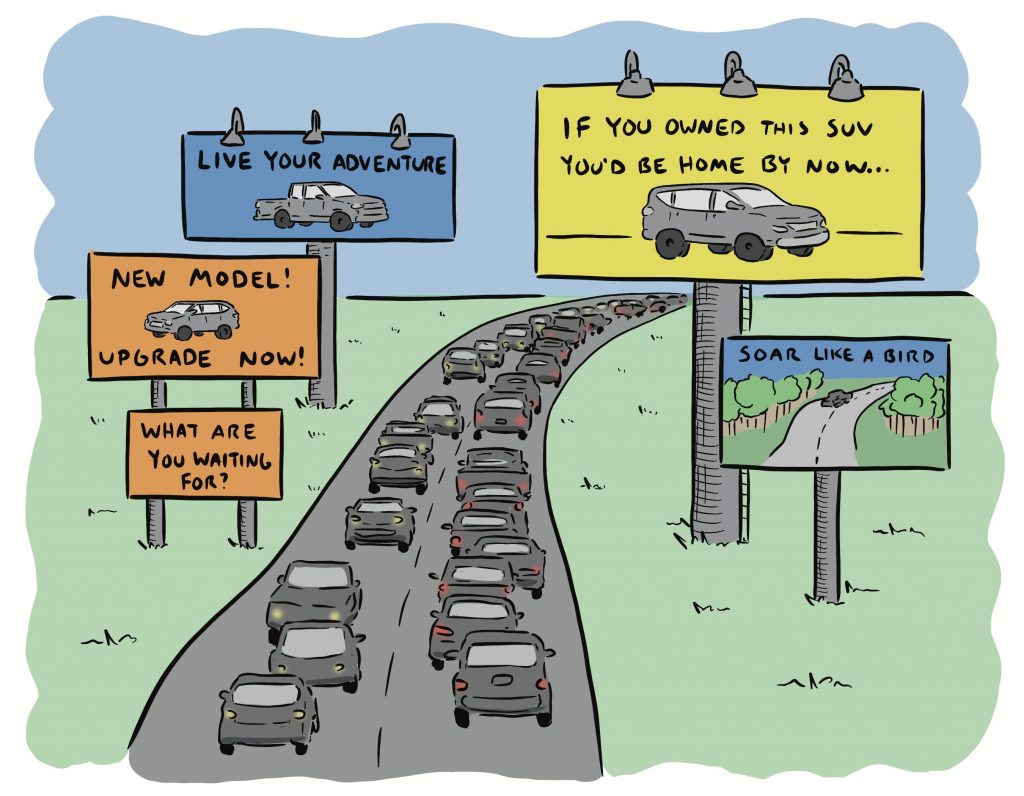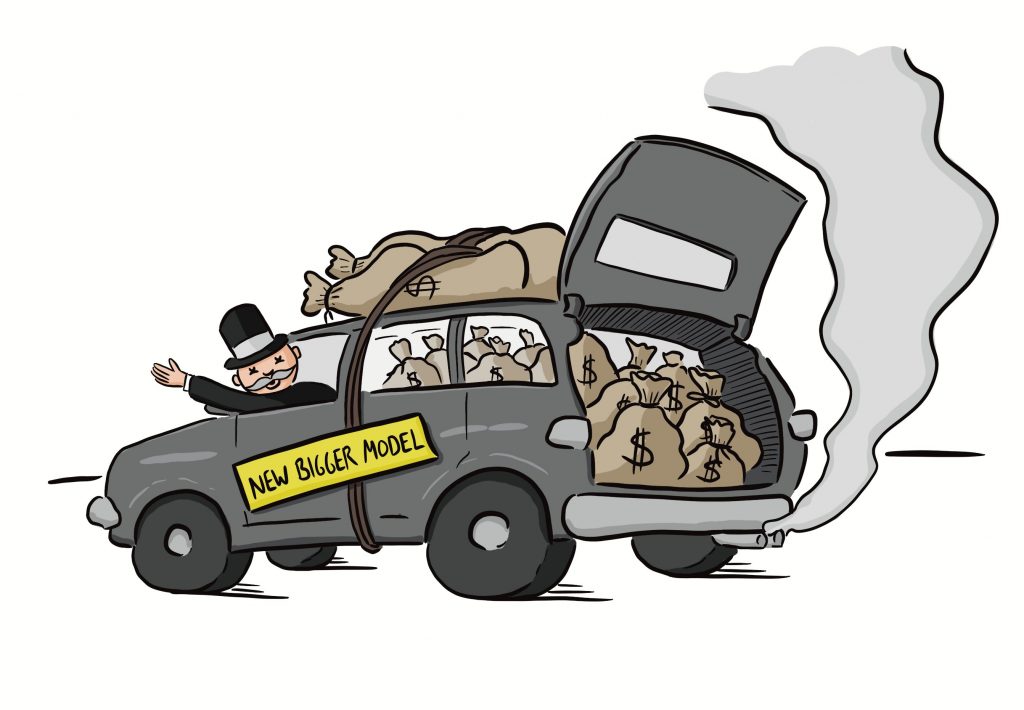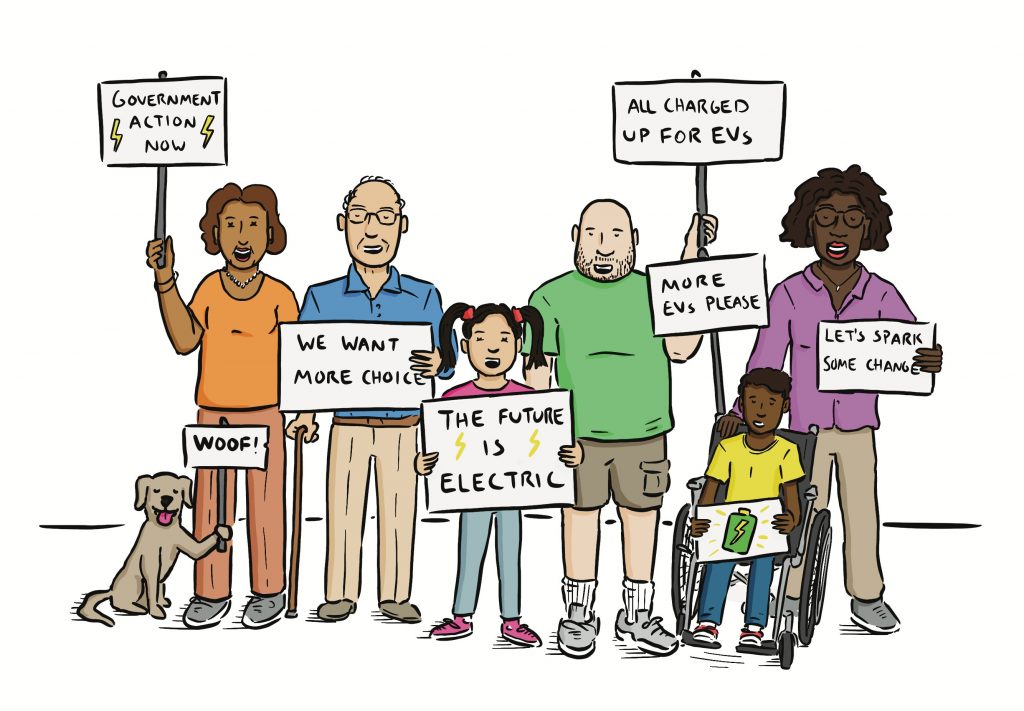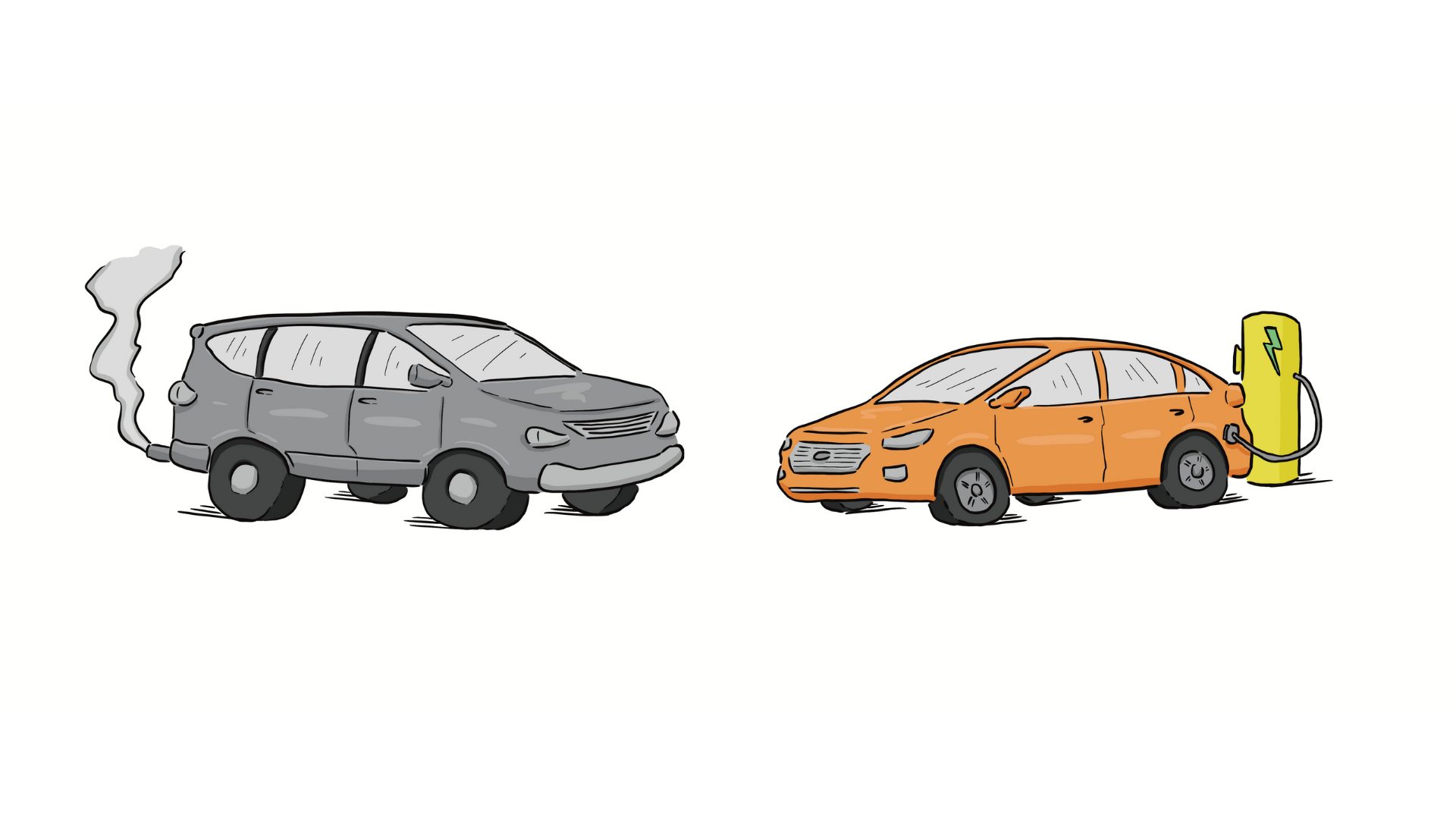If you’re someone who gets charged up about electric vehicles (EVs), it’s an exciting time.
It seems that a new announcement is made practically every month about another electric car that will soon be cruising the neighborhood streets. The latest was of course the announcement from Ford that an all-electric version of their F-150 pickup will be available as soon as next year.
By all accounts, it looks as though EVs are about to hit main street in a big way. But, as our new report shows, these EV promises and fanfare should be taken with a big grain of salt.
TAKE ACTION: Tell the federal government to do more to get electric vehicles on Canada’s roads and to make them more affordable
Car makers are good at making promises, but less good at keeping them. And while they promise an all-electric future – sometime down the road – they are knowingly profiting off of pollution today and actively working to keep those profits flowing by pushing highly polluting and highly profitable SUVs and pickups on Canadians.


Indeed, our report, Car Wars, EVs vs. SUVs and the Battle for a Cleaner Future, exposes how carmakers’ promises of an all-electric future mask their push to sell more SUVs now, contributing to rising emissions from transportation, which is the second largest source of carbon emissions in Canada.
Emissions have been rising from cars year over year, even while fuel economy has improved – and one of the main reasons is that Canadians have been buying bigger and bigger cars. Today, Canadians drive the most polluting cars in the world because we buy such large vehicles. In fact, four out of every five vehicles sold in Canada are SUVs, pickups or vans, but only 1.6 per cent of those are electric.
And while you might want to chalk that up to consumer preference, the reality is that car-makers are doing what they can to push us toward SUVs and pickups and keep us in these bigger cars because… big cars equate to big profits.


Ford’s annual report from 2019 laid it out quite clearly in saying “A shift in consumer preferences away from larger, more profitable vehicles (including trucks and utilities) … could result in an immediate and substantial adverse effect on our financial condition…” In plain terms: If Ford doesn’t keep selling lots of SUVs and trucks, they will make less money.
And so, naturally, they’re pushing these gas guzzlers. A study in the U.S. found that companies there spent 28 times more money advertising the top gas-powered cars than they spent on EVs. Here in Canada, four out of five car ads promote SUVs and pickups, making it no coincidence that nearly 80 per cent of vehicles sold in Canada are now SUVs and pickup trucks, and vans.


And it’s not just advertising. Most dealers don’t stock EVs, so if you wanted to test drive one, good luck. And then if you still want to get one, expect to be on a long waiting list.
The car companies like it this way, and they intend to keep it this way as long as they can. Consider that in 2026, Ford and GM plan to make 5 million SUVs and trucks in North America, but only about 300,000 EVs. Yes, five years from now, Ford and GM want just five percent of their sales to be EVs.
Meanwhile, these same companies are lobbying against climate policy, including any policy that would force them to sell more EVs. And they are hiding behind their promises and the good publicity that they get from making EV promises, keeping government action at bay.
Well, it’s time to hold the car companies to account for those promises. It’s time for the government to intervene. Because we’re not going to get to where we need to go without that.


We’re calling on the Federal government to reign in the car-makers, and make sure that Canadians can actually get an EV if they want one. Yes, EVs will not solve all our woes, but most experts agree that they are part of the mix.
Specifically, we want Canada to:
- Put new taxes on SUVs and pickups, and divert the additional funds for EV incentives
- Strengthen fuel economy regulations to ensure that Canada’s regulations are aligned with the toughest in North America.
- Introduce a strict zero-emission vehicle standard to require car companies sell an increasing percentage of electric cars, and 100% EVs by 2035 at the latest; and
- Improve financial incentives to make EVs more affordable for everyone.
If you really want to see an all electric future, join us in calling on Canada to take action now to make it become a reality.
Interested to read a longer version of the Car Wars report (24 pages)? Download it here.








